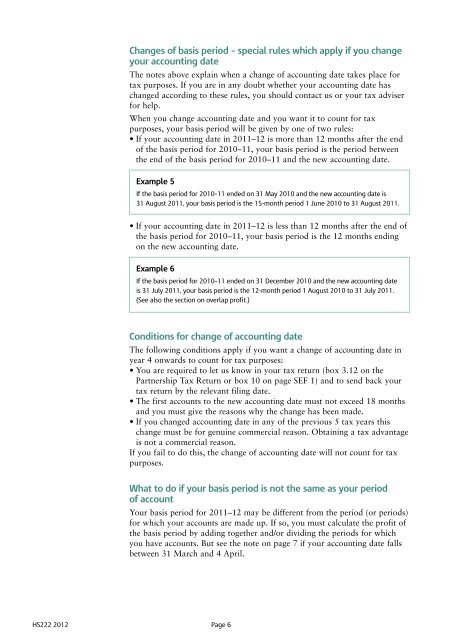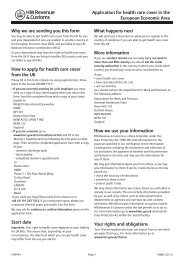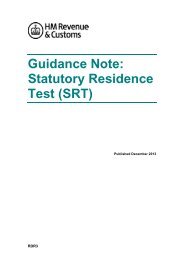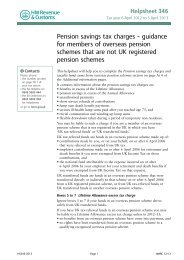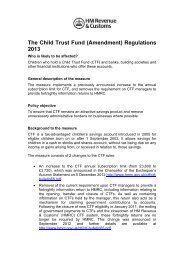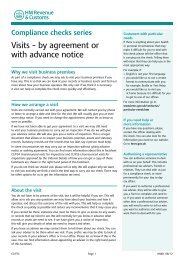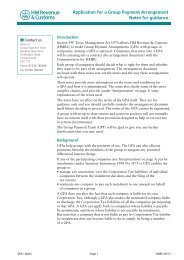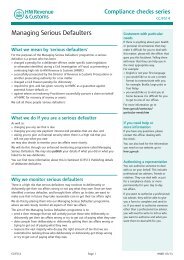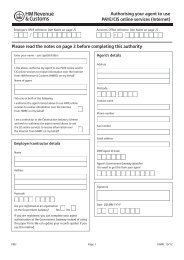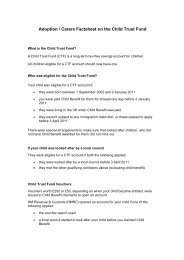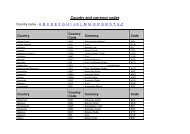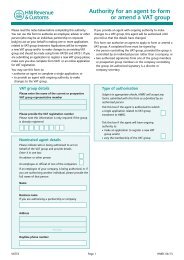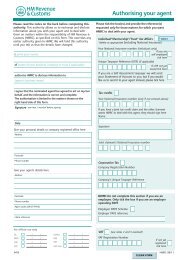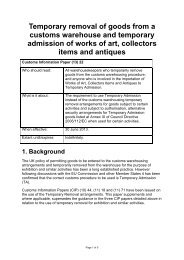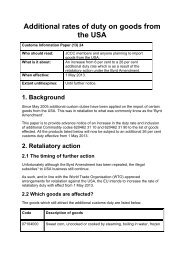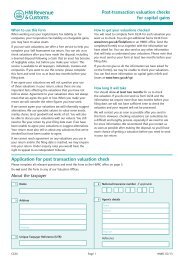Helpsheet 222
Helpsheet 222
Helpsheet 222
You also want an ePaper? Increase the reach of your titles
YUMPU automatically turns print PDFs into web optimized ePapers that Google loves.
Changes of basis period – special rules which apply if you change<br />
your accounting date<br />
The notes above explain when a change of accounting date takes place for<br />
tax purposes. If you are in any doubt whether your accounting date has<br />
changed according to these rules, you should contact us or your tax adviser<br />
for help.<br />
When you change accounting date and you want it to count for tax<br />
purposes, your basis period will be given by one of two rules:<br />
• If your accounting date in 2011–12 is more than 12 months after the end<br />
of the basis period for 2010–11, your basis period is the period between<br />
the end of the basis period for 2010–11 and the new accounting date.<br />
Example 5<br />
• If your accounting date in 2011–12 is less than 12 months after the end of<br />
the basis period for 2010–11, your basis period is the 12 months ending<br />
on the new accounting date.<br />
Conditions for change of accounting date<br />
The following conditions apply if you want a change of accounting date in<br />
year 4 onwards to count for tax purposes:<br />
• You are required to let us know in your tax return (box 3.12 on the<br />
Partnership Tax Return or box 10 on page SEF 1) and to send back your<br />
tax return by the relevant filing date.<br />
• The first accounts to the new accounting date must not exceed 18 months<br />
and you must give the reasons why the change has been made.<br />
• If you changed accounting date in any of the previous 5 tax years this<br />
change must be for genuine commercial reason. Obtaining a tax advantage<br />
is not a commercial reason.<br />
If you fail to do this, the change of accounting date will not count for tax<br />
purposes.<br />
What to do if your basis period is not the same as your period<br />
of account<br />
Your basis period for 2011–12 may be different from the period (or periods)<br />
for which your accounts are made up. If so, you must calculate the profit of<br />
the basis period by adding together and/or dividing the periods for which<br />
you have accounts. But see the note on page 7 if your accounting date falls<br />
between 31 March and 4 April.<br />
HS<strong>222</strong> 2012 Page 6<br />
If the basis period for 2010–11 ended on 31 May 2010 and the new accounting date is<br />
31 August 2011, your basis period is the 15-month period 1 June 2010 to 31 August 2011.<br />
Example 6<br />
If the basis period for 2010–11 ended on 31 December 2010 and the new accounting date<br />
is 31 July 2011, your basis period is the 12-month period 1 August 2010 to 31 July 2011.<br />
(See also the section on overlap profit.)


